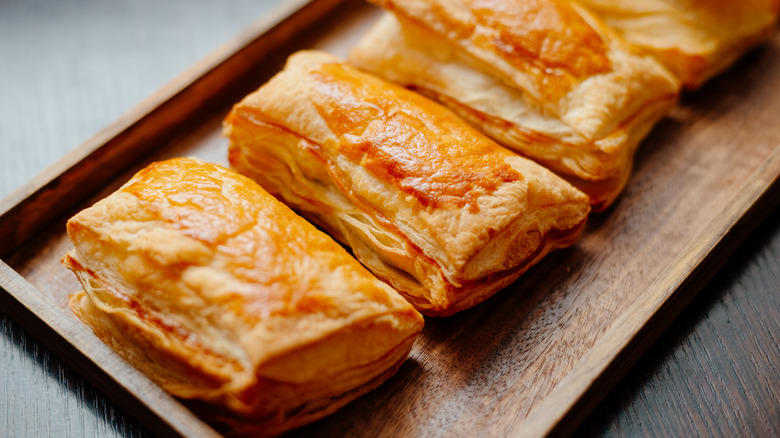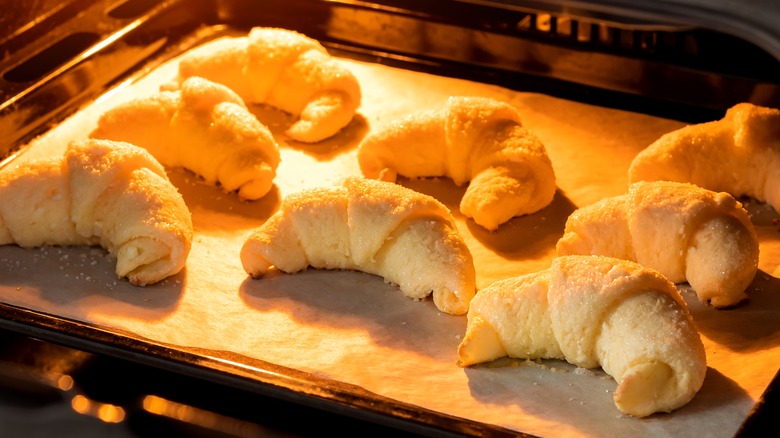This Could Be Why Your Puff Pastry Didn't Bake Evenly
There is really no nice way of saying this: Puff pastry can be one of the worst ingredients to work with. So much can go wrong in every step of the process, often relating to finicky temperature standards, and leave you with a bake that's soggy, dense, greasy, or all of the above. It's a big enough pain to deal with that even true pros like Alton Brown usually opt for store-bought frozen dough instead of making their own.
This is all to say that it is a shame that so many puff pastry recipes are damn tasty. The process can be maddening, but the end result of a perfectly made croissant is one of the most sublime experiences in cooking. Those light, flaky layers are transformative, a culinary magic trick born from butter and steam, creating the air pockets and light interior that defines the phrase "Worth it" (via Bon Appétit). So as much as you may want to avoid puff pastry, sometimes a Danish is calling your name, and you'll need a few pointers for making sure it comes out of the oven perfectly browned.
Watch out for oven hot spots when baking puff pastry
When it comes to even heating, not every area inside your oven was created equal. Most ovens get what are called hot spots, areas with higher temperatures than the average you're cooking at, with the heat usually being the lowest, but also the most even, towards the middle of your oven (via King Arthur Baking Company). So if your pastries are pale on top or burnt on one side, you may just need to adjust the position of your tray to take into account your oven's naturally hotter zones. It also helps to make sure you rotate trays when baking puff pastry, as this will minimize the impact of hot spots by flipping which sides of your baked goods are exposed to the hotter temperatures.
Hot spots aren't the only culprit when it comes to unevenly cooked puff pastry. Taste of Home also says you need to take care in shaping your pastry; a dough that isn't rolled out to a uniform thickness can mean an uneven bake once it hits the oven. So yes, puff pastry is sensitive in all sorts of ways, but the solutions to its problems can often be simple if you know the basics. Treat it with care, and you'll never hesitate to take on Kouign-Amann again.

